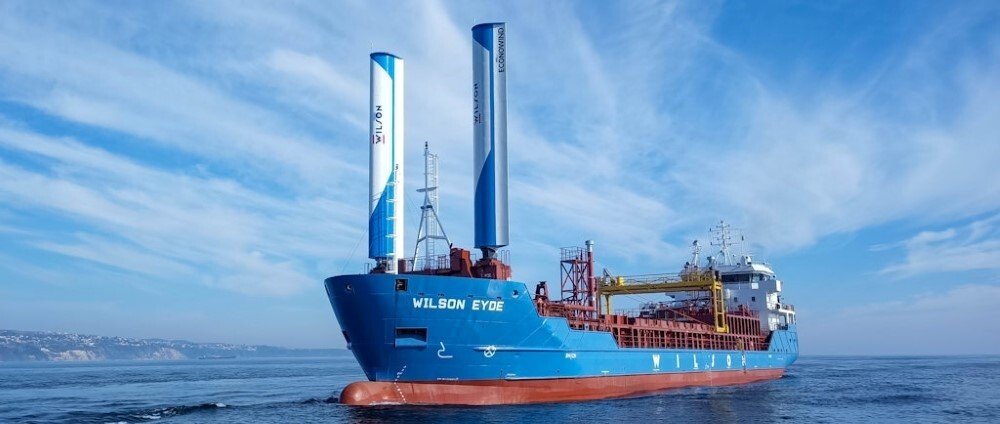

Norwegian industrial leader Hydro and shipping company Wilson ASA are setting a new standard in energy-efficient logistics with the launch of the "Wilson Eyde." Named in honour of Sam Eyde, the pioneering industrialist who founded Hydro and was instrumental in launching Norway's hydropower-based industry in the early 20th century, the new vessel includes some exciting features.

This newly refitted vessel will harness wind-assisted propulsion to transport pitch—a crucial raw material used by Hydro in the production of primary aluminium. Pitch, derived from the distillation of coal tar, acts as a binder in the carbon anodes essential for aluminium smelting.
Since the 1980s, vessels "Leiro" and "Lindo" have reliably delivered this vital material to Hydro's anode production sites in Norway. Now, these ageing ships are being replaced by the more sustainable and modern "Wilson Eyde," marking a significant step toward greener maritime transport in the aluminium value chain.
"Most logistics operations today are powered by fossil energy sources. We are working to reduce the footprint of this link in the value chain by transferring tonnage from road to sea, developing greener shipping routes and using RoRo ships, new technology, and digital tools to improve efficiency. The ambition is to cut emissions from the logistics chain by 30 per cent by 2030," said Gerd Aalborg Aas, Vice President for Logistics in Hydro Aluminium Metal.
"Wilson Eyde" is equipped with wind-assisted propulsion and an AI-based fuel optimisation system. Together with increased load capacity, these technological innovations will result in a highly efficient transport solution that both reduces emissions and saves costs. The ship will operate on a regular route between suppliers in Europe and Hydro's production facilities in Norway. It had its first call at Hydro in Årdal on April 15.
Hydro remains committed to its long-standing purpose of building viable communities through the responsible use of natural resources—now with a strong focus on driving the green transition and advancing the circular economy. The company is on course to reduce emissions across its entire value chain by 30 per cent by 2030, using 2018 as a baseline and is steadfast in its ambition to reach net-zero emissions in aluminium production by 2050.
"Meeting tomorrow's environmental requirements is crucial to our success. We are therefore committed and grateful to develop innovative solutions that not only reduce our environmental footprint, but also strengthen our collaboration with partners such as Hydro," added Jostein Bjørgo, Chief Commercial Officer at Wilson.
Image Source: Wilson



Responses






